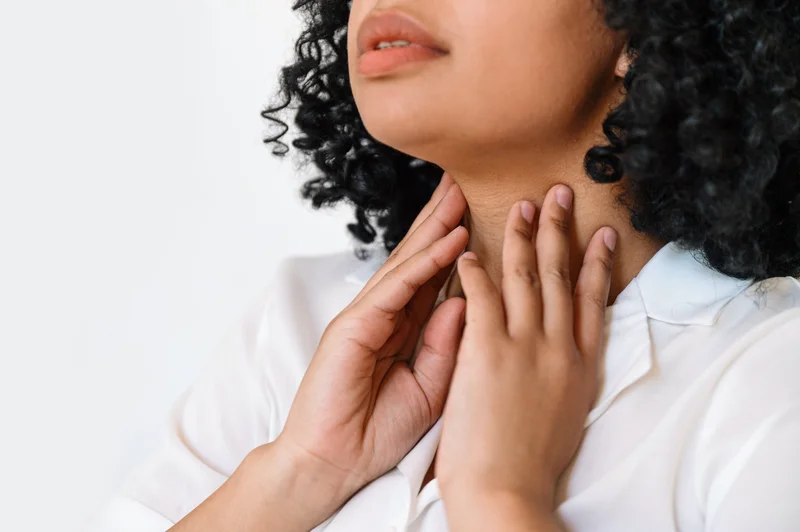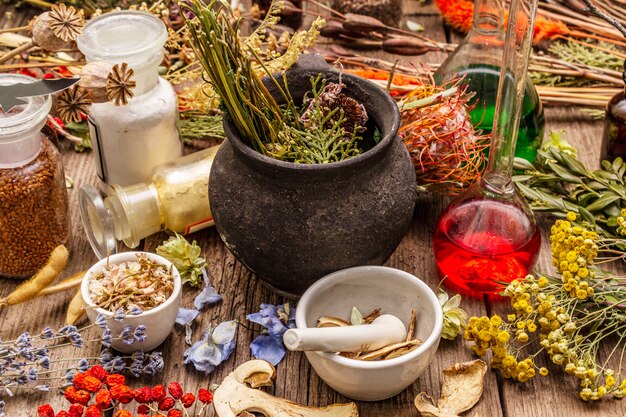Ask Ayurvedic doctor a question and get a consultation online on the problem of your concern in a free or paid mode. More than 2,000 experienced doctors work and wait for your questions on our site and help users to solve their health problems every day.
Tundikeri in Ayurveda – Understanding the Mouth and Throat Condition

Introduction to Tundikeri in Ayurveda
Tundikeri, in Ayurvedic medicine, refers to a condition that affects the mouth and throat, much like tonsillitis. The term "Tundikeri" is derived from the words Tundi (meaning mouth) and Keri (meaning location). This condition is often marked by inflammation in the throat, pain, and sometimes the formation of sores or swelling. Ayurveda views Tundikeri as a disruption in the balance of the body's doshas, particularly Pitta and Kapha, which leads to an imbalance in the throat and surrounding areas. Ayurvedic treatments for Tundikeri focus on restoring this balance, soothing inflammation, and promoting healing through natural remedies and lifestyle adjustments.
Don't wait or self medicate. Start chat with Doctor NOW
Historical Roots & Ayurvedic Significance
In Ayurveda, the treatment of conditions like Tundikeri has been an integral part of healing practices for centuries. Ayurvedic texts describe various oral and throat-related disorders, including Tundikeri, and emphasize the need for balancing the doshas to manage symptoms. Historically, herbs and treatments have been prescribed not only to reduce inflammation but also to enhance immune function and detoxify the body. The holistic approach of Ayurveda sees the mouth and throat as vital areas connected to overall health, highlighting the importance of early intervention and maintaining a healthy internal environment.
Key Symptoms & Causes of Tundikeri
1. Common Symptoms
Tundikeri typically manifests with the following symptoms:
- Sore Throat: A sharp or burning sensation in the throat.
- Swelling: Swelling around the tonsils or throat area.
- Difficulty Swallowing: Painful swallowing, sometimes accompanied by dryness or irritation in the mouth.
- Fever: In some cases, a mild fever accompanies the condition.
- White Patches or Sores: In more severe cases, white patches may appear in the mouth or on the tonsils, similar to symptoms seen in tonsillitis.
2. Causes of Tundikeri
According to Ayurveda, Tundikeri occurs when there is an imbalance in the Pitta dosha, which governs heat and inflammation, combined with an excess of Kapha dosha, leading to mucus and congestion in the throat. Factors contributing to Tundikeri include:
- Poor Digestion: An imbalance in digestive fire (Agni) can lead to the accumulation of toxins (Ama) in the body, contributing to infections and inflammation in the throat.
- Viral or Bacterial Infection: External factors like infections can aggravate the Pitta dosha, leading to Tundikeri.
- Exposure to Cold or Dry Weather: This can exacerbate Kapha and lead to throat irritation.
- Dietary Imbalances: Excessive consumption of hot, spicy, or oily foods may also increase Pitta, leading to throat inflammation.
Ayurvedic Treatments for Tundikeri
1. Herbal Remedies
Ayurveda offers various herbal solutions to treat Tundikeri by focusing on reducing inflammation and soothing the throat:
- Tulsi (Ocimum sanctum): Known for its anti-inflammatory and antimicrobial properties, tulsi helps in reducing throat inflammation and fighting infections.
- Licorice (Glycyrrhiza glabra): An excellent herb for soothing the throat, reducing irritation, and relieving pain.
- Honey: Often used as a base for Ayurvedic remedies, honey is both soothing and antimicrobial, providing relief from the sore throat and helping to balance the doshas.
- Ginger (Zingiber officinale): Ginger helps to stimulate digestion and reduce inflammation, addressing the root cause of the condition.
- Turmeric (Curcuma longa): Due to its anti-inflammatory and antibacterial properties, turmeric is used to reduce swelling and promote healing in the throat.
2. Gargling with Ayurvedic Solutions
A common Ayurvedic treatment for Tundikeri involves gargling with herbal infusions. Gargling with warm water mixed with salt, turmeric, or ginger can help reduce swelling, cleanse the mouth, and soothe the inflamed throat.
3. Diet and Lifestyle Modifications
To manage Tundikeri, Ayurveda recommends modifying your diet to balance the doshas and support healing:
- Avoid Hot and Spicy Foods: These can aggravate Pitta and increase inflammation in the throat.
- Incorporate Cooling Foods: Eating cooling foods like cucumber, coconut, and dairy can help balance Pitta and soothe the throat.
- Drink Warm Fluids: Consuming warm liquids like herbal teas (e.g., ginger tea or tulsi tea) helps hydrate the throat and clear congestion.
- Rest: Adequate rest allows the body to heal and helps maintain a balance in the doshas.
4. Ayurvedic Detoxification
To reduce the toxic buildup in the body, Ayurveda recommends detoxification practices such as Panchakarma, which includes methods like Nasya (nasal therapy) and Virechana (purgation). These therapies help clear toxins from the body, restore doshic balance, and prevent recurrent infections.
How Ayurvedic Remedies for Tundikeri Work
Ayurvedic treatments for Tundikeri work by targeting the root cause of the condition—imbalanced doshas—while addressing the symptoms. Herbs like tulsi and licorice have anti-inflammatory and antimicrobial properties that help in reducing the swelling, fighting infections, and soothing the throat. Lifestyle modifications and dietary changes work to balance the internal environment, reduce inflammation, and promote overall well-being.
Recommended Dosage & How to Use Ayurvedic Remedies for Tundikeri
Ayurvedic treatments for Tundikeri vary based on individual health conditions. Some general recommendations include:
- Herbal Teas: Drink warm herbal teas like ginger or tulsi tea 2-3 times a day to soothe the throat and reduce inflammation.
- Gargling: Gargle with warm salt water or a turmeric-infused solution twice daily to cleanse the mouth and relieve throat discomfort.
- Herbal Supplements: Consult an Ayurvedic practitioner for proper dosage of herbs like licorice, turmeric, and ginger, either in powder or tablet form.
- Honey and Turmeric Paste: Consume a small amount of honey mixed with turmeric to soothe the throat and promote healing.
Potential Side Effects & Precautions
While Ayurvedic remedies are generally safe, there are a few precautions to keep in mind:
- Allergic Reactions: Some individuals may have allergic reactions to certain herbs or substances used in remedies. Always perform a patch test before using any topical treatments.
- Pregnancy & Nursing: Pregnant or breastfeeding women should consult an Ayurvedic practitioner before using herbal remedies.
- Dosage: Always adhere to the recommended dosage, as excessive use of certain herbs may lead to digestive upset or other issues.
Frequently Asked Questions For Tundikeri in Ayurveda
What is Tundikeri in Ayurveda?
Tundikeri in Ayurveda refers to a condition that affects the mouth and throat, similar to tonsillitis. It is characterized by inflammation, pain, and swelling in the throat, and is caused by an imbalance in the Pitta and Kapha doshas.
What are the common symptoms of Tundikeri?
Common symptoms of Tundikeri include a sore throat, difficulty swallowing, swelling around the tonsils, fever, and the formation of white patches or sores in the mouth.
What causes Tundikeri in Ayurveda?
Tundikeri is caused by an imbalance in the Pitta dosha, leading to inflammation and heat in the throat, often exacerbated by poor digestion, infections, cold weather, or dietary imbalances.
How can Ayurvedic remedies help treat Tundikeri?
Ayurvedic remedies help treat Tundikeri by reducing inflammation, soothing the throat, and balancing the doshas. Herbs like tulsi, licorice, and turmeric are commonly used to provide relief and support healing.
Can gargling with Ayurvedic solutions help relieve Tundikeri?
Yes, gargling with warm water mixed with turmeric, salt, or ginger can help reduce swelling, cleanse the mouth, and soothe the inflamed throat, providing effective relief from Tundikeri symptoms.
What lifestyle changes should I make to manage Tundikeri?
To manage Tundikeri, avoid hot and spicy foods, consume cooling foods like cucumbers and coconut, drink warm herbal teas, and get plenty of rest to allow the body to heal.
Are there any side effects of using Ayurvedic treatments for Tundikeri?
Ayurvedic treatments are generally safe, but some individuals may experience allergic reactions or digestive discomfort. Always consult with a qualified practitioner and follow the recommended dosage for optimal results.
Conclusion & Expert Insights
Tundikeri, an inflammatory condition of the mouth and throat, can be effectively managed with Ayurvedic treatments that focus on balancing the doshas, reducing inflammation, and promoting healing. By incorporating herbal remedies, dietary modifications, and lifestyle changes, individuals can find relief from this condition and restore their overall health. Consulting an Ayurvedic practitioner is recommended to ensure safe and personalized treatment.
References & Further Reading
- Lad, V. (2002). Ayurveda: The Science of Self-Healing.
- Sharma, P.V. (1995). Ayurvedic Healing: A Comprehensive Guide.
- Journal of Ayurveda and Integrative Medicine for research articles on throat and mouth conditions.
- National Institute of Ayurveda:



